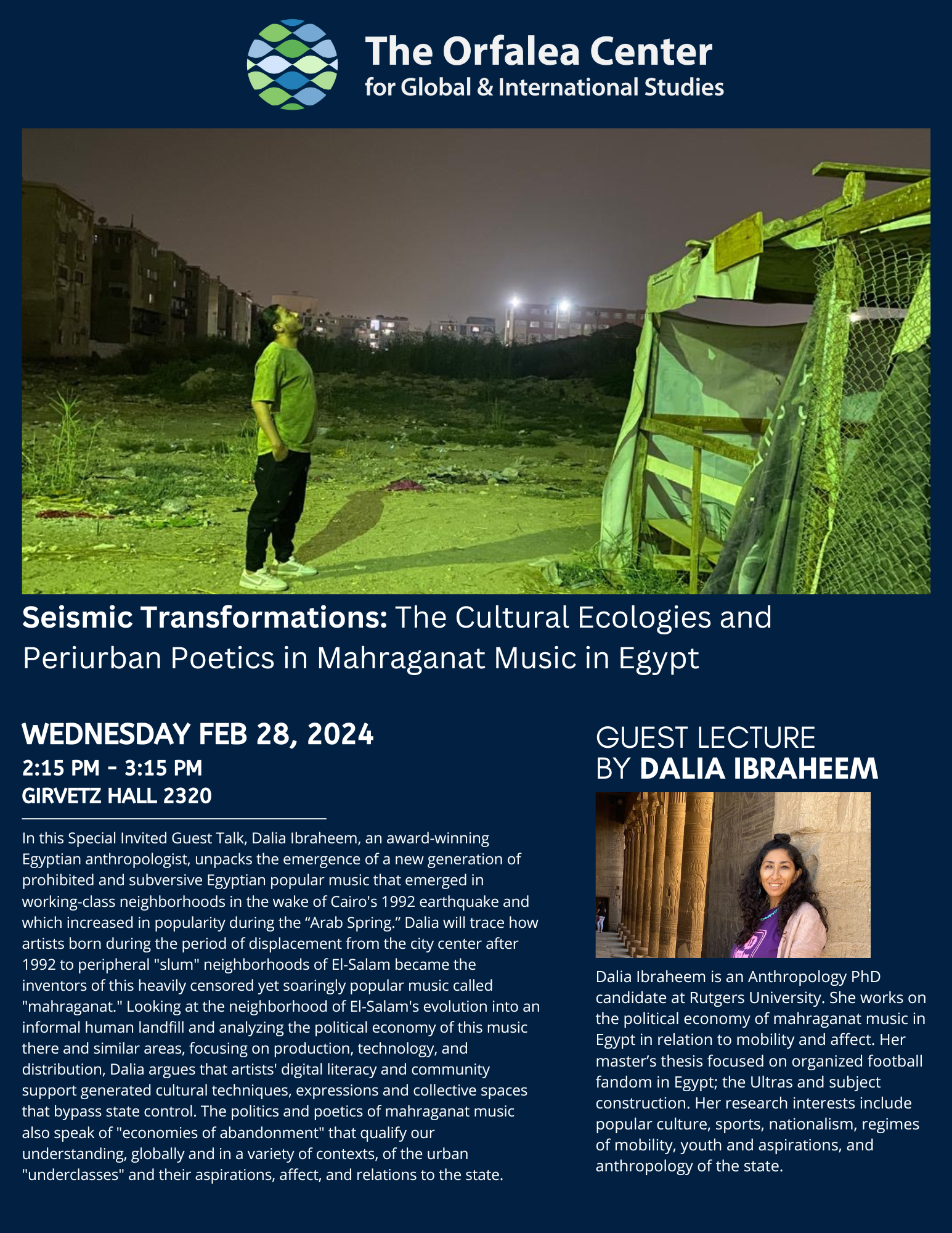
Girvetz 2320
Dalia Ibraheem (PhD candidate, Rutgers) unpacks the emergence of a new generation of prohibited and subversive Egyptian popular music that emerged in working-class neighborhoods in the wake of Cairo's 1992 earthquake and which increased in popularity during the “Arab Spring.” Dalia will trace how artists born during the period of displacement from the city center after 1992 to peripheral "slum" neighborhoods of El-Salam became the inventors of this heavily censored yet soaringly popular music called "mahraganat." Looking at the neighborhood of El-Salam's evolution into an informal human landfill and analyzing the political economy of this music there and similar areas, focusing on production, technology, and distribution, Dalia argues that artists' digital literacy and community support generated cultural techniques, expressions and collective spaces that bypass state control. The politics and poetics of mahraganat music also speak of "economies of abandonment" that qualify our understanding, globally and in a variety of contexts, of the urban "underclasses" and their aspirations, affect, and relations to the state.